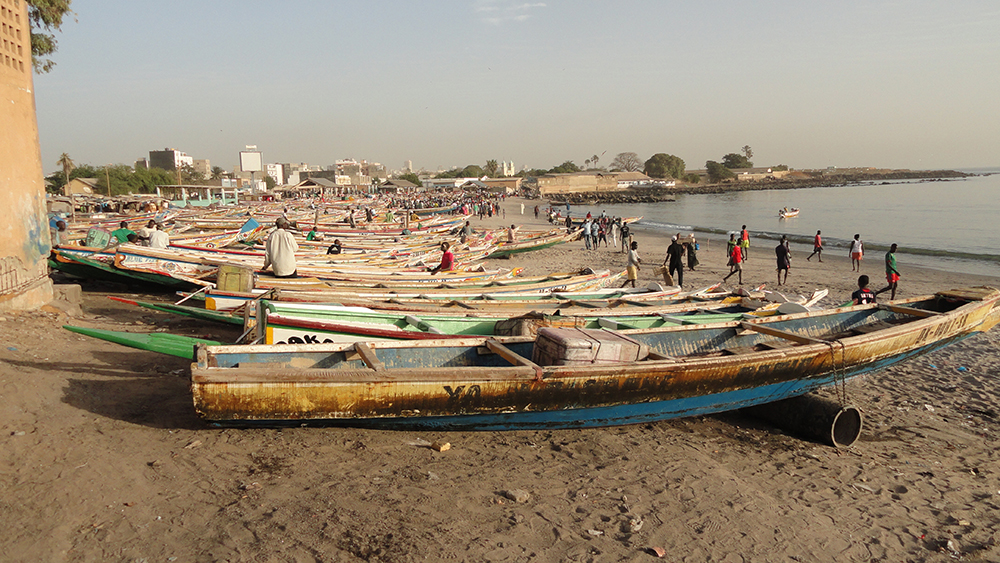
USAID/COMFISH: There is wide agreement by most scientists and professionals that climate change is already occurring with serious consequences for Senegal, where it is likely to have significant impacts on the fisheries sector, coastal and marine biodiversity, coastal habitat and infrastructure, and coastal communities. Combined climate and non-climate stresses can impinge on the success of co-management and the goal of prosperous and sustainable artisanal fisheries. Impacts include the migration of inland farmers to coastal fishing communities, thereby adding to the number of fishers and fishing effort. Impacts also include coastal erosion and habitat loss associated with sea level rise and storm sea surge, soil salinization and salt water intrusion of coastal aquifers.
The project assisted the Ministry of Fisheries and Maritime Economy to better integrate climate change into the national planning process and in local planning. Outcomes and outputs included: 1) the preparation of the National Adaptation Plan (NAP) for the fisheries sector with a vision to 2035. This is the first sectoral adaptation plan to contribute to Senegal’s National Climate Change Adaptation Plan. It was officially signed by the Ministers of Fisheries and of Environment in October 2016 and was showcased at the Climate Change Conference of the Parties (COP) in Morocco in October 2016. A Climate Change Fisheries Platform, under the leadership of COMNACC (National Committee on Adaptation to Climate Change), was established to oversee the entire NAP/fishery process; 2) six vulnerability assessments of local communities followed by six local adaptation plans, formally approved and in the process of implementation; and 3) scientific studies to accompany the whole process. More than 5,510 people were trained (39% women) in climate change. Actions taken in the implementation of local adaptation plans included, among others, the establishment of the National Weather Alert Platform for safety at sea to improve the resilience of coastal communities and the implementation of a fisheries insurance scheme.
USAID/COMFISH Plus: The project continues to support the inter-agency adaptation in fisheries Steering Committee that USAID/COMFISH established that involves DPM, DEEC, COMNACC, and several other institutional actors (CSE, CRODT, ANACIM, LPAO, etc.). The purpose is to facilitate coordination in the process of monitoring and implementing the Plan, and supporting action items in the Plan. USAID/COMFISH Plus is also providing assistance in the implementation of local CLPA climate change adaptation plans and to assess the effectiveness of adopted CLPA adaptation plans with respect to
reducing community vulnerability to climate change and increasing resilience. Other local climate change adaptation actions are integrated in the formally approved participatory fisheries management plans.
The project continues the work of USAID/COMFISH in supporting the National Meteorological Services (the Directorate of Meteorology at ANACIM) in terms of training, maintaining the SMS and voice weather alert system for fishers in collaboration with ANACIM and other service providers, and building partnerships with the private sector.
A new project focused on climate information services delivery and adoption was launched in 2016 (the CINSERE project). COMFISH Plus will continue collaboration already established and seek synergies between the two projects.


